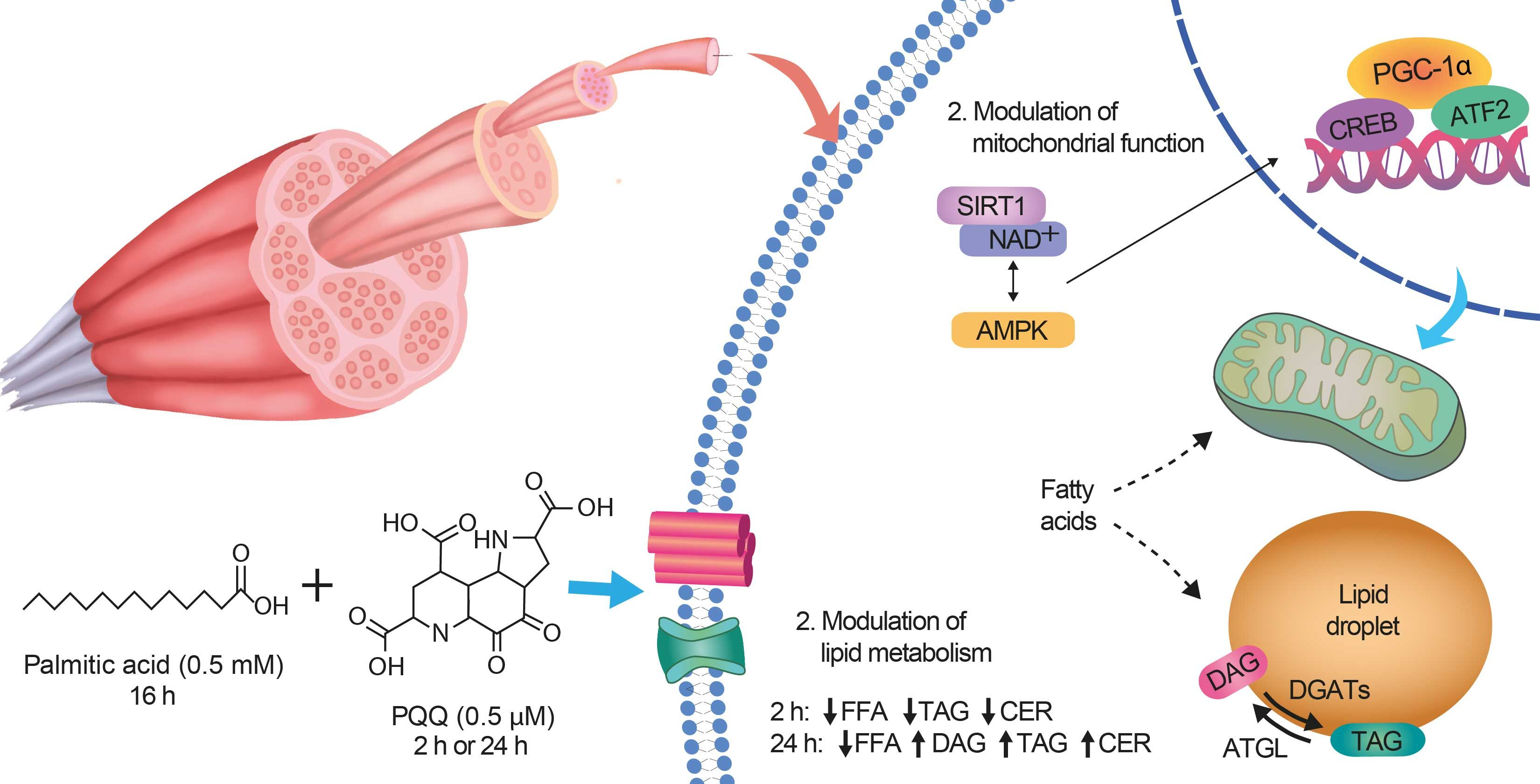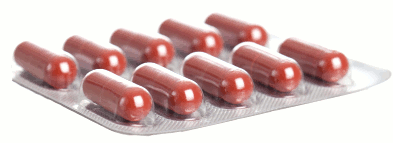Does PQQ help with weight loss?
Pyrroloquinoline Quinone (PQQ) is a powerful compound that has been gaining attention in recent years for its potential role in promoting health and wellness. Known primarily for its ability to support cellular energy production and protect against oxidative stress, PQQ is often marketed as an antioxidant supplement with wide-ranging benefits. One area of growing interest is whether PQQ can contribute to weight loss. While scientific research is still ongoing, several mechanisms suggest that PQQ may support weight management and metabolic health.
What is PQQ, and How Does it Work for Weight Loss?
Pyrroloquinoline quinone, or PQQ, is a vitamin-like compound found in various plant and animal sources. It functions as a potent antioxidant and plays a vital role in cellular energy production by supporting the proper functioning of mitochondria, the powerhouses of our cells. By optimizing mitochondrial function, PQQ may help increase energy expenditure and metabolic rate, potentially leading to enhanced weight loss.
Furthermore, PQQ has been shown to influence the expression of certain genes involved in fat metabolism and energy utilization. It may promote the breakdown of fat cells (lipolysis) and discourage the formation of new fat cells (adipogenesis), thereby contributing to a reduction in overall body fat.
Because PQQ is both stable and highly efficient in redox cycling, it can repeatedly neutralize free radicals, making it one of the most potent antioxidants available. Its primary reputation lies in promoting mitochondrial health, which is directly linked to energy metabolism, endurance, and overall vitality.
The Link Between Mitochondria and Weight Loss
Weight loss and metabolism are closely tied to mitochondrial function. Mitochondria generate ATP (adenosine triphosphate), the energy currency of the body, which is essential for physical activity, metabolic processes, and fat burning. When mitochondria are functioning optimally, the body is more efficient at converting nutrients into usable energy rather than storing them as fat.
Research has shown that PQQ can stimulate the growth of new mitochondria in a process called mitochondrial biogenesis. More mitochondria mean better energy utilization, enhanced fat oxidation, and improved metabolic flexibility. In this way, PQQ indirectly supports weight management by improving how your body processes and uses energy.
PQQ and Fat Metabolism
Some preclinical studies suggest that PQQ may play a role in influencing fat metabolism. By improving mitochondrial efficiency, PQQ could enhance the breakdown of fatty acids, leading to better fat utilization for energy. This process is particularly important during exercise or calorie restriction when the body relies on fat as a major energy source.
Additionally, PQQ’s ability to reduce oxidative stress can prevent mitochondrial damage that often accompanies obesity and metabolic syndrome. Protecting these energy-producing organelles ensures they can continue to support efficient metabolism, which is a cornerstone of weight management.
PQQ’s Role in Reducing Inflammation
Chronic inflammation is one of the key barriers to weight loss and is often associated with obesity, insulin resistance, and metabolic disorders. PQQ has demonstrated anti-inflammatory properties by regulating inflammatory signaling pathways and reducing markers such as C-reactive protein (CRP).
Inflammation can contribute to insulin resistance, a condition in which the body's cells become less responsive to insulin, leading to impaired glucose metabolism and potential weight gain. By reducing inflammation, PQQ powder may help improve insulin sensitivity, thereby enhancing the body's ability to utilize glucose effectively and supporting weight loss efforts.
By lowering inflammation, PQQ may help improve insulin sensitivity, reduce fat accumulation, and create a more favorable environment for weight management. This makes it not only a potential aid in weight loss but also a protector against long-term metabolic diseases.
PQQ and Appetite Regulation
Although limited, some emerging evidence points to PQQ’s potential in modulating appetite and satiety. By improving mitochondrial function in the brain and supporting neurotransmitter balance, PQQ could have an indirect effect on appetite control. Energy efficiency and stable blood sugar levels also play a role in reducing food cravings, which are often a major challenge in weight management.
While more research is needed to establish a clear connection, the possibility that PQQ influences appetite regulation adds another layer of interest to its role in weight loss.
PQQ Combined with Lifestyle Changes
It’s important to emphasize that PQQ alone is not a magic solution for shedding pounds. Weight loss depends on a combination of factors, including diet, exercise, stress management, and sleep. However, incorporating PQQ as part of a comprehensive health plan may give individuals an additional advantage.
For example, those who exercise regularly may experience enhanced endurance and fat burning due to improved mitochondrial function. Similarly, individuals adopting a calorie-conscious diet may find PQQ helpful in maintaining energy levels and reducing oxidative stress during weight loss efforts.
How to Take PQQ for Weight Management
PQQ is available in supplement form, typically in doses ranging from 10 mg to 40 mg per day. It is often paired with Coenzyme Q10 (CoQ10) since the two work synergistically to support mitochondrial energy production.
For those interested in using PQQ for weight loss support, consistency is key. While immediate changes should not be expected, regular supplementation combined with a balanced lifestyle may lead to noticeable benefits over time. As always, consulting with a healthcare professional before starting supplementation is recommended.
Conclusion
While more clinical research is needed to draw definitive conclusions, current evidence suggests that PQQ powder may play a supportive role in weight loss and overall metabolic health supplements formulations. By enhancing mitochondrial function, reducing inflammation, improving fat metabolism, and possibly influencing appetite regulation, PQQ creates conditions that favor weight management.
It should be seen as a complementary tool rather than a standalone weight-loss solution. Combined with proper nutrition, exercise, and healthy habits, PQQ could be a valuable addition to a wellness plan aimed at achieving and maintaining a healthy weight.
Yangge Biotech is a trusted global supplier of high-quality nutraceutical and functional ingredients, including Pyrroloquinoline Quinone (PQQ) and other premium antioxidants. We provide reliable raw materials to support supplement brands, food manufacturers, and health companies worldwide. With strict quality standards, competitive pricing, and professional service, Yangge Biotech is your partner in creating innovative, effective, and safe health products.
Among our popular products is the Pyrroloquinoline Quinone Powder. If you are interested in this product or have any inquiries, please feel free to contact us today for your Pyrroloquinoline Quinone (PQQ) powder needs! Email: info@yanggebiotech.com
References:
1. Choi, Y., Jung, J., Song, K., Chung, H. Y., & Park, J. W. (2021). Pyrroloquinoline quinone (PQQ) ameliorates obesity and metabolic disorders by activating AMPK in adipose tissue. International Journal of Obesity, 45(3), 638-650.
2. Harris, C. B., Chowanadisai, W., Mishchuk, D. O., Satre, M. A., Slupsky, C. M., & Rucker, R. B. (2013). Dietary pyrroloquinoline quinone (PQQ) alters indicators of inflammation and mitochondrial-related metabolism in human subjects. The Journal of Nutritional Biochemistry, 24(12), 2076-2084.
3. Saihara, K., Kamikubo, R., Ikuma, K., Uchida, K., Ryu, H., Hara, H., ... & Kashiwagi, K. (2017). Pyrroloquinoline quinone, a redox active compound, suppresses adipogenesis of 3T3-L1 cells via the SIRT1-AMPK pathway. Biochemical and Biophysical Research Communications, 489(4), 404-409.
4. Stites, T. E., Storms, D., Bauerly, K., Milling, J., Michalski, A., Olszewski, V., & Knowlton, A. A. (2006). Pyrroloquinoline quinone modulates mitochondrial quantity and function in mice. The Journal of Nutrition, 136(2), 390-396.
5. Rucker, R., Bauerly, K., Carrieri, C., Radmer, D., Mueckler, C., & Kurzian, C. (2019). Effects of pyrroloquinoline quinone on metabolic parameters in older subjects with metabolic syndrome. Clinical and Experimental Pharmacology and Physiology, 46(7), 639-646.






